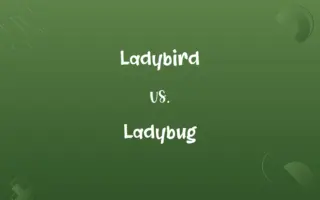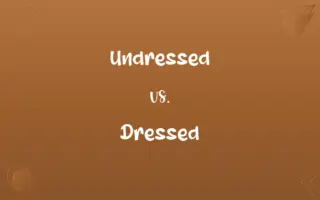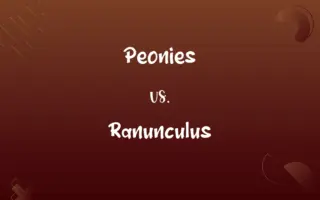Lord vs. Sir: Know the Difference

By Shumaila Saeed || Updated on December 25, 2023
Lord is a hereditary or appointed nobility title; Sir is a title given to knights, granted by the monarch, non-heritable.

Key Differences
A Lord is typically someone with authority or power, often associated with nobility or a person of high rank in a feudal society or in administrative or governmental roles. The term "Lord" can encompass a range of ranks in the British peerage, from barons to dukes, and can also be used in a religious context to refer to a deity or a revered religious leader. Conversely, "Sir" is a title of honor or respect used before the given name of a knight or baronet, which are ranks in the British system of chivalry and honor. The title "Sir" is awarded by the monarchy through a ceremonial process known as knighthood and is not inherited.
Shumaila Saeed
Nov 08, 2023
"Lord" often implies ownership or jurisdiction over a territory, domain, or group of people, and historically, it denoted a feudal lord's authority over a manor or a region. The title can be inherited, as with a hereditary peer, or granted for life, as with a life peer. "Sir," however, is an honorific prefix used for someone knighted by the Crown, reflecting personal achievement or service to the country, and does not convey hereditary rights or legislative powers. Individuals who are knighted become knights and may use the title "Sir" for life, but it does not pass on to their descendants.
Shumaila Saeed
Nov 08, 2023
In terms of address and usage, "Lord" is used with either the full title or the last name, such as Lord [Title] or Lord [Last Name], and it is used in formal and legal contexts. "Sir" precedes the first name of the individual who has been knighted, such as Sir [First Name], and is a common form of address in both formal and social situations. While the title of "Lord" can come with certain privileges, including potentially a seat in the House of Lords, "Sir" does not grant any political power but is a mark of distinction and recognition.
Shumaila Saeed
Nov 08, 2023
The term "Lord" has broader uses and can be applied to certain high officials or judges, such as the Lord Chancellor or Lord Justice. It can also be a courtesy title for the younger sons of dukes and marquesses. In contrast, "Sir" is exclusively used for knights and baronets and does not extend to other roles or familial connections. It is often used in public and professional spheres to acknowledge the status of the individual.
Shumaila Saeed
Nov 08, 2023
While both "Lord" and "Sir" are British titles and carry a sense of prestige and honor, they stem from different traditions and have different implications in terms of heredity, authority, and the nature of their conferment. "Lord" has a more aristocratic connotation and may involve a role in governance, while "Sir" is a personal honor recognizing an individual's service or accomplishments without conferring noble status.
Shumaila Saeed
Nov 08, 2023
ADVERTISEMENT
Comparison Chart
Source of Title
Hereditary/Conferred by the monarch
Conferred by the monarch
Shumaila Saeed
Nov 08, 2023
Hereditary
Often hereditary (peerage) or for life (life peers)
Non-heritable
Shumaila Saeed
Nov 08, 2023
Association with Rank
Ranges from barons to dukes, including judges and high officials
Knights and baronets only
Shumaila Saeed
Nov 08, 2023
Involvement in Governance
May hold a seat in the House of Lords
No direct role in governance
Shumaila Saeed
Nov 08, 2023
ADVERTISEMENT
Post-nominal Letters
None specific to the title of Lord
None specific to the title of Sir
Shumaila Saeed
Nov 08, 2023
Gender
Predominantly male, but can apply to females in certain contexts (e.g., Lady)
Exclusively male
Shumaila Saeed
Nov 08, 2023
Global Recognition
Recognized internationally with variable significance
Recognized internationally
Shumaila Saeed
Nov 08, 2023
Extension to Spouse
Spouse may be addressed as Lady
Spouse does not receive a title
Shumaila Saeed
Nov 08, 2023
ADVERTISEMENT
Lord and Sir Definitions
Lord
A man of high rank in a feudal society or monarchy.
The peasants paid their taxes directly to the Lord of the manor.
Shumaila Saeed
Nov 08, 2023
Sir
A title of honor given to knights.
Sir Lancelot was one of the most famous knights of the Round Table.
Shumaila Saeed
Nov 08, 2023
Sir
Used before the given name of a knight or a baronet.
Sir Paul McCartney was knighted by the Queen in 1997.
Shumaila Saeed
Nov 08, 2023
Sir
A respectful form of address to a man.
Excuse me, sir, you've dropped your wallet.
Shumaila Saeed
Nov 08, 2023
Sir
A term used to address a male teacher or master in certain English-speaking countries.
Sir, may I please be excused from class?
Shumaila Saeed
Nov 08, 2023
Sir
Sir Used as an honorific before the given name or the full name of baronets and knights.
Shumaila Saeed
Oct 19, 2023
Lord
Used as a title for certain high officials and dignitaries
Lord Chamberlain.
The Lord Mayor of London.
Shumaila Saeed
Oct 19, 2023
Sir
A respectful term of address to a man of higher rank or position, particularly:
Shumaila Saeed
Oct 19, 2023
Sir
To a knight or other low member of the peerage.
Just be careful. He gets whingy now if you don't address him as Sir John.
Shumaila Saeed
Oct 19, 2023
Sir
A respectful term of address to an adult male (often older), especially if his name or proper title is unknown.
Excuse me, sir, do you know the way to the art museum?
Shumaila Saeed
Oct 19, 2023
Sir
To address (someone) using "sir".
Sir, yes, sir!
Don't you sir me, private! I work for a living!
Don't you sir me, private! I work for a living!
Shumaila Saeed
Oct 19, 2023
Sir
A man of social authority and dignity; a lord; a master; a gentleman; - in this sense usually spelled sire.
He was crowned lord and sire.
In the election of a sir so rare.
Shumaila Saeed
Oct 19, 2023
Sir
A title prefixed to the Christian name of a knight or a baronet.
Sir Horace Vere, his brother, was the principal in the active part.
Shumaila Saeed
Oct 19, 2023
Lord
To insist upon or boast about so as to act in a domineering or superior manner
"He had lorded over her his self-proclaimed spiritual and poetic superiority" (David Leavitt).
Shumaila Saeed
Oct 19, 2023
Sir
An English rendering of the LAtin Dominus, the academical title of a bachelor of arts; - formerly colloquially, and sometimes contemptuously, applied to the clergy.
Instead of a faithful and painful teacher, they hire a Sir John, which hath better skill in playing at tables, or in keeping of a garden, than in God's word.
Shumaila Saeed
Oct 19, 2023
Lord
To act in a domineering or superior manner
An upperclassman lording over the younger students.
Shumaila Saeed
Oct 19, 2023
Sir
A respectful title, used in addressing a man, without being prefixed to his name; - used especially in speaking to elders or superiors; sometimes, also, used in the way of emphatic formality.
Shumaila Saeed
Oct 19, 2023
Lord
To have a prominent or dominating position
The castle lords over the valley.
Shumaila Saeed
Oct 19, 2023
Lord
(obsolete) The master of the servants of a household; (historical) the master of a feudal manor
Shumaila Saeed
Oct 19, 2023
Sir
A formal title preceding a man's name in correspondence.
The letter was addressed to Sir Thomas More.
Shumaila Saeed
Nov 08, 2023
Lord
One possessing similar mastery over others; (historical) any feudal superior generally; any nobleman or aristocrat; any chief, prince, or sovereign ruler; in Scotland, a male member of the lowest rank of nobility (the equivalent rank in England is baron)
Shumaila Saeed
Oct 19, 2023
Lord
One possessing similar mastery in figurative senses (esp. as lord of ~)
Shumaila Saeed
Oct 19, 2023
Lord
(astrology) The heavenly body considered to possess a dominant influence over an event, time, etc.
Shumaila Saeed
Oct 19, 2023
Lord
(transitive) To invest with the dignity, power, and privileges of a lord; to grant the title of lord.
Shumaila Saeed
Oct 19, 2023
Lord
One who has power and authority; a master; a ruler; a governor; a prince; a proprietor, as of a manor.
But now I was the lordOf this fair mansion.
Man over menHe made not lord.
Shumaila Saeed
Oct 19, 2023
Lord
A titled nobleman., whether a peer of the realm or not; a bishop, as a member of the House of Lords; by courtesy; the son of a duke or marquis, or the eldest son of an earl; in a restricted sense, a baron, as opposed to noblemen of higher rank.
Shumaila Saeed
Oct 19, 2023
Lord
A title bestowed on the persons above named; and also, for honor, on certain official persons; as, lord advocate, lord chamberlain, lord chancellor, lord chief justice, etc.
Shumaila Saeed
Oct 19, 2023
Lord
One of whom a fee or estate is held; the male owner of feudal land; as, the lord of the soil; the lord of the manor.
Shumaila Saeed
Oct 19, 2023
Lord
To play the lord; to domineer; to rule with arbitrary or despotic sway; - sometimes with over; and sometimes with it in the manner of a transitive verb; as, rich students lording it over their classmates.
The whiles she lordeth in licentious bliss.
I see them lording it in London streets.
And lorded over them whom now they serve.
Shumaila Saeed
Oct 19, 2023
Lord
A hereditary title for British noblemen.
Lord Grantham presides over the estate with a benevolent hand.
Shumaila Saeed
Nov 08, 2023
Lord
A respectful term for a male judge or certain high officials.
The case was presided over by Lord Justice Smith.
Shumaila Saeed
Nov 08, 2023
Lord
An alternative title for God or Jesus in religious contexts.
The congregation sang hymns praising the Lord.
Shumaila Saeed
Nov 08, 2023
Lord
Used in Britain as a courtesy title for younger sons of dukes and marquesses.
Lord John Smith is the second son of the Duke of Cheshire.
Shumaila Saeed
Nov 08, 2023
Repeatedly Asked Queries
Can "Sir" ever be inherited?
No, the title "Sir" is non-heritable and is a personal honor.
Shumaila Saeed
Nov 08, 2023
Does "Lord" imply land ownership?
Historically, "Lord" often implied ownership of land, but in modern times, it may not.
Shumaila Saeed
Nov 08, 2023
Is "Lord" a religious title?
"Lord" can refer to God or Jesus in a religious context, apart from its aristocratic use.
Shumaila Saeed
Nov 08, 2023
Is the wife of a Sir called Lady?
The wife of a knighted "Sir" may be called "Lady" followed by her husband's surname.
Shumaila Saeed
Nov 08, 2023
Is there a female equivalent to "Sir"?
Yes, the female equivalent for a knighted woman is "Dame."
Shumaila Saeed
Nov 08, 2023
Can "Sir" be used for someone who isn’t knighted?
In general use, "Sir" can be a polite form of address for any man, but it is a title only for knighted individuals.
Shumaila Saeed
Nov 08, 2023
How does one address a Lord in writing?
In writing, a Lord is addressed as "Lord [Title/Surname]."
Shumaila Saeed
Nov 08, 2023
Can a woman be a Lord?
In certain contexts, a woman can be a "Lord," but the female equivalent is usually "Lady."
Shumaila Saeed
Nov 08, 2023
How does one become a Sir?
Becoming a "Sir" involves being knighted by the monarch, typically for significant contributions to national life.
Shumaila Saeed
Nov 08, 2023
Are Lords still influential today?
Some Lords, particularly life peers, remain influential, especially in the House of Lords.
Shumaila Saeed
Nov 08, 2023
Are there modern-day Lords?
Yes, there are modern-day Lords in the UK, including life peers, hereditary peers, and those holding courtesy titles.
Shumaila Saeed
Nov 08, 2023
What is a baronet?
A baronet is a hereditary title, ranking below Lords but above knights, and holders can use "Sir."
Shumaila Saeed
Nov 08, 2023
Do all Lords have a seat in the House of Lords?
Not all Lords have a seat; only life peers and some hereditary peers appointed do.
Shumaila Saeed
Nov 08, 2023
Can the title of "Lord" be bought?
Titles cannot be legitimately bought; they are granted by the monarchy or inherited.
Shumaila Saeed
Nov 08, 2023
Can foreigners be knighted?
Non-British citizens may receive honorary knighthoods and use the title "Sir" but not in front of their names.
Shumaila Saeed
Nov 08, 2023
Is "Lord" or "Sir" higher in rank?
"Lord" is generally considered higher in rank as it can be associated with peerage.
Shumaila Saeed
Nov 08, 2023
Can "Sir" be used in a non-knighting context?
Yes, "Sir" can be used as a general term of respect for men, particularly in formal situations.
Shumaila Saeed
Nov 08, 2023
What is a life peer?
A life peer is someone granted the title of "Lord" for life, but it is not inherited.
Shumaila Saeed
Nov 08, 2023
Do Lords have any special privileges?
Lords may have certain ceremonial privileges and, if part of the House of Lords, legislative roles.
Shumaila Saeed
Nov 08, 2023
How do you formally address a knight?
A knight is addressed as "Sir [First Name]," such as "Sir Ian McKellen."
Shumaila Saeed
Nov 08, 2023
Share this page
Link for your blog / website
HTML
Link to share via messenger
About Author
Written by
Shumaila SaeedShumaila Saeed, an expert content creator with 6 years of experience, specializes in distilling complex topics into easily digestible comparisons, shining a light on the nuances that both inform and educate readers with clarity and accuracy.







































































